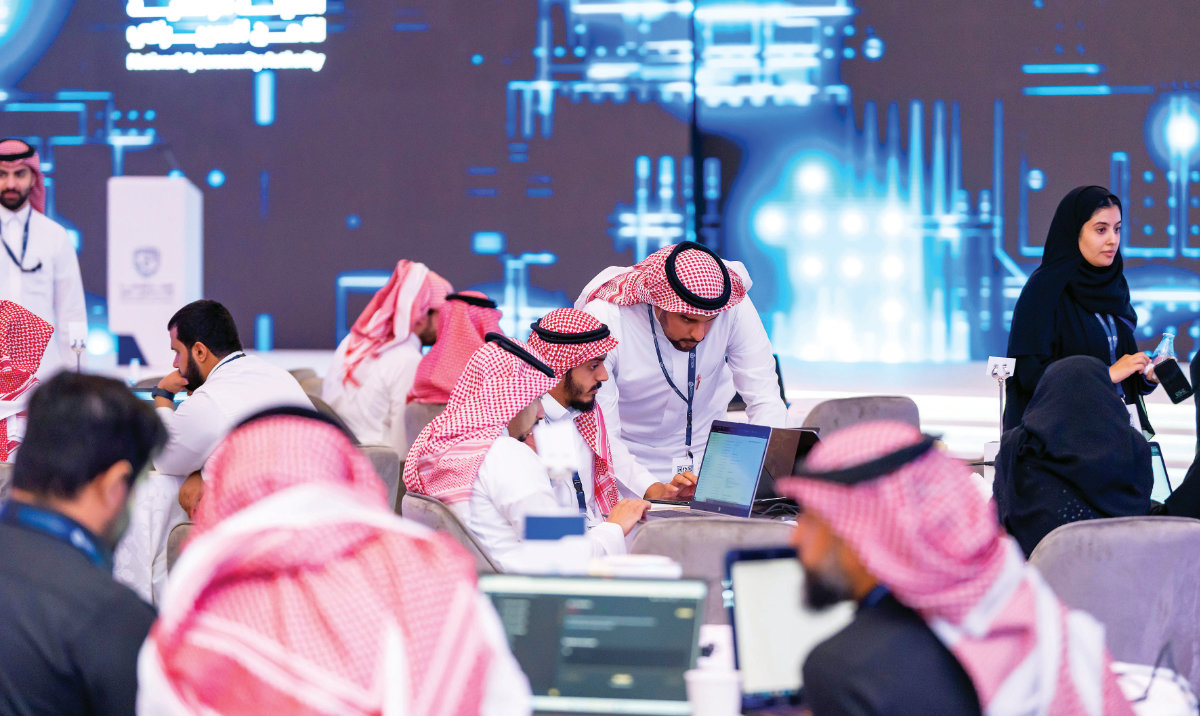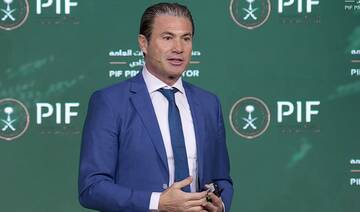RIYADH: Saudi Arabia continues to vigorously pursue its reform agenda, with a focus on bolstering foreign direct investment inflows and diversifying investment strategies despite a recent deceleration in its financial account as reported by the Saudi Central Bank and the Ministry of Finance.
In the second quarter of 2023, FDI inflows experienced a 21 percent decline compared to the same period last year, amounting to SR6.2 billion ($1.65 billion).
FDI outflows, which encompass the capital invested by Saudi entities in foreign countries, reached SR18.34 billion, a 53 percent decrease from the corresponding quarter of the previous year.
Albara’a Al-Wazir, an economist at the US-Saudi Business Council, said: “Despite the recent decline in FDI to SR6.2 billion, the number of investment licenses issued by the Ministry of Investment … reached 1,819 in Q2, marking a 94 percent increase compared to the previous year.”
He added: “Saudi Arabia has implemented significant legal, economic, and social changes to attract higher levels of foreign direct investment since the launch of Vision 2030.”
Al-Wazir highlighted that the Ministry of Investment granted licenses to 180 companies to establish regional headquarters in the Kingdom ahead of the January 2024 deadline.
The economist anticipates that the regional headquarters program will expedite FDI in Saudi Arabia.
“As companies seeking government projects will need to relocate, the full impact of this program is expected to manifest in the medium term, albeit with a potential lag,” he said.
Saudi Arabia has also announced tax incentives for foreign companies establishing their regional headquarters in the Kingdom, including a 30-year exemption from corporate income tax.
These measures also encompass zero income tax for foreign entities relocating their regional headquarters, effective from the issuance date of the license, as outlined by the Ministry of Investment.

Riyadh has announced tax incentives for foreign companies establishing their regional headquarters in the Kingdom, including a 30-year exemption from corporate income tax. (SPA)
Al-Wazir said the newly introduced NEOM Investment Fund is strategically positioned to draw investors and play a role in the development of the new city.
Despite the decline in FDI in the second quarter of 2023, he emphasized that the Kingdom achieved the second-highest amount in the Middle East and Africa region during this period.
As per information disclosed by the Ministry of Investment, the FDI stock, representing the cumulative FDI in Saudi Arabia, saw a 2.89 percent increase during this period.
The ministry highlighted that this rise signifies the growing confidence of foreign investors in the Saudi investment ecosystem.
Reforms to the Kingdom’s economy are not new, with a report from the World Bank issued in 2020 noting the significance of a series of measures primarily concentrated on starting a business, dealing with construction permits, and facilitating international trade.
Additionally, the report noted that protections for minority investors were strengthened, a value-added tax was introduced, and notable improvements in trading and contract enforcement were implemented.
These reforms collectively demonstrate Saudi Arabia’s commitment to creating a more efficient and investor-friendly business environment.
According to the International Bar Association report on the Kingdom’s FDI legal framework and outlook in April 2023, Saudi Arabia is witnessing an increasing flow of FDI across various sectors. The main contributors to this investment surge include France, Japan, Kuwait, as well as Malaysia, Singapore, the UAE, and the US.
As outlined in the report, key sectors drawing substantial FDI include the chemical industry, real estate, fossil fuels, as well as automobiles, tourism, plastics, and machinery. This diversification indicates a growing interest and confidence from international investors in Saudi Arabia’s economic landscape.
Data from the Ministry of Investment indicated a 135.4 percent annual increase in the number of investment licenses issued, reaching 2,192 in the third quarter of this year.
According to the ministry, this surge underscores Saudi Arabia’s appeal as an attractive investment destination, offering competitive advantages within a stable and supportive business environment.
FASTFACT
Data from the Ministry of Investment indicated a 135.4 percent annual increase in the number of investment licenses issued, reaching 2,192 in the third quarter of this year.
Gross Fixed Capital Formation, reflecting investment in tangible assets like buildings, machinery, equipment, and infrastructure for production, saw a notable 7 percent increase during this period totaling SR278.9 billion, as reported by the ministry.
Within this, non-government GFCF accounted for approximately 85 percent of the total, reaching SR236.6 billion. This marked a 7.6 percent growth compared to the corresponding period last year.
In contrast, government GFCF held a 15 percent share during this quarter, with a 3.5 percent increase, reaching a total of SR42.3 billion. This data underscores the significant role of both non-government and government sectors in driving capital formation within Saudi Arabia’s economy.
The Kingdom’s financial account, which includes net values for direct investment, portfolio investment, and reserve assets, amounted to SR42.97 billion. This figure represents a 70 percent decline compared to the corresponding period last year, according to the report from the Kingdom’s central bank.
Portfolio investment, the second component of Saudi Arabia’s financial account, experienced a 66 percent decrease, primarily attributed to the Kingdom’s increased borrowings.
Meanwhile, the net acquisition of financial assets showed a robust 25 percent annual growth in the second quarter, totaling SR50.14 billion. However, this increase was countered by a rise in the portfolio’s liability section, with debt securities increasing from -SR18.53 billion to SR25.69 billion during the same period.
According to Al-Wazir: “The Kingdom signaled that it would utilize debt markets to raise liquidity to fund its projects. The increase in borrowing via debt securities underscores its commitment to achieve its desired diversification goals.”
He added: “The Kingdom has more recently issued both external and domestic debt, with domestic riyal-denominated debt accounting for approximately 63 percent of the total. In H1 2023, the government issued SR23 billion in domestic debt, while growing total domestic debt from SR615 billion to SR624 billion.”
Reserve assets, encompassing special drawing rights and currency, deposits, and securities, witnessed a 70 percent decrease. This decline is attributed to the devaluation of securities within this category.
“The topic of drawing down reserves, in this case securities, is a strategic move to decrease SAMA’s reserve holdings and redirect cash across a diversified set of vehicles,” explained Al-Wazir.
“Saudi has been adjusting its investment strategy in recent years whereby it is allocating money to national funds like the Public Investment Fund and National Development Fund. An example of this is when SAMA transferred SR150 billion from its foreign reserves to PIF in 2020,” he added.
The economist concluded by asserting that public debt remains sustainable, comfortably staying below the 50 percent debt to gross domestic product ceiling, and the fiscal capacity is substantial. He emphasized that the government’s borrowing strategy primarily aims to lengthen maturities, reduce refinancing costs, and establish a yield curve.
















